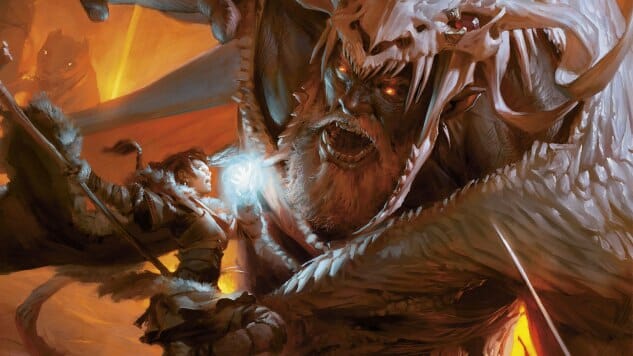5 Tabletop RPG Alternatives to Dungeons & Dragons
Artwork courtesy of the respective publishers
The first incarnation of the massively-popular Dungeons & Dragons actual play podcast The Adventure Zone has come to an end. Maybe more than any other pop cultural phenomena in recent memory, the series has drawn listeners to the power and charm of tabletop roleplaying, encouraging new and old players to give the 5th edition of D&D a shot. But what happens when the reality doesn’t live up to the fantasy? As a lapsed roleplayer myself, I decided to try D&D late last year, assembling a group of veteran and novice roleplayers to tell a story of magical intrigue. We had a blast, but only because we—like the McElroy family—played fast and loose with the rules.
As the dungeon master, I found myself tweaking things on the fly to make the game run more smoothly. This was especially true when it came to conflicts—a huge proportion of D&D’s ruleset is devoted to the mechanics of combat, which is disappointing considering that the stock action isn’t all that exciting. It was hard enough to get a group of adults with difficult schedules in one place on a regular basis, and none of us wanted to spend our time together trying and failing to hit the same orc over and over.
Luckily, D&D is far from the only game in town these days. Whether you’re interested in intensely detailed combat, a more flowing narrative, or a game that can be played over a session rather than a campaign, there’s a title for you. In assembling this list, I stuck to games that at least loosely approximate D&D in its focus on heroic characters, a fantastical vaguely-medieval world, and the traditional arrangement of one dungeon master and several players.
1. Dungeon World

One of the biggest indie roleplaying games in the last decade, Dungeon World exemplifies the “story games” approach, running on the “Powered by the Apocalypse” system created by Vincent Baker for his groundbreaking Apocalypse World. Like that game, Dungeon World pairs the rules to the narrative in a way that can take a little getting used to but ends up feeling smooth and natural. There’s a general set of “moves” that encompass most actions a player could want to take, and the game encourages you to talk in terms of narrative, with the corresponding move then used to determine results. Speaking of which, Dungeon World is big on keeping things moving—regardless of whether a particular die roll fails or succeeds, something interesting will come out of it.



